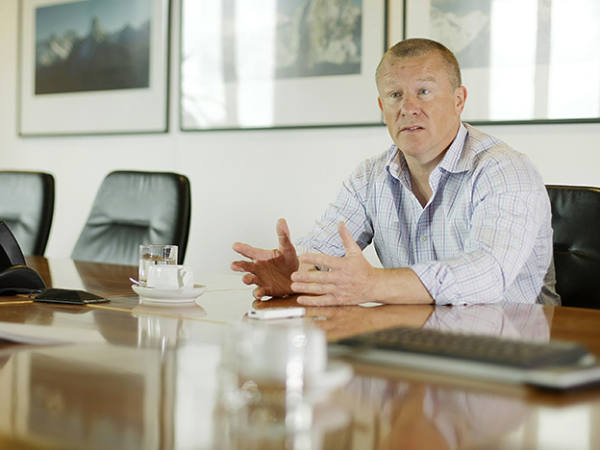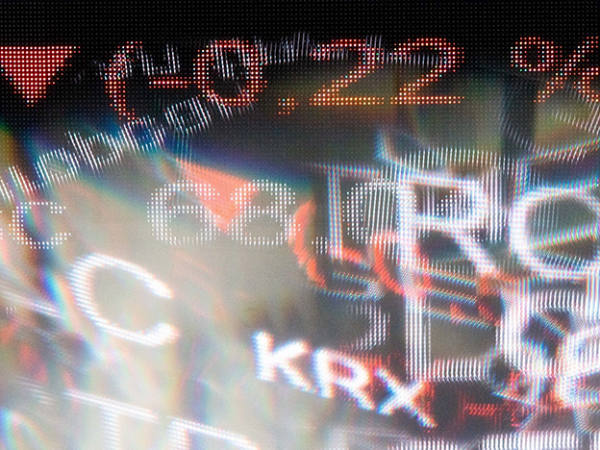Aviva Investors Global Equity Endurance invests in cheap stocks that generate a good level of cash in a predictable and sustainable manner
It also has holdings that could benefit from a reopened economy
It does not have as much of its assets in tech stocks as some global equities funds and indices
Popular global equity funds have not had the most encouraging start to 2021. With expectations of higher growth and inflation causing trouble for quality stocks, steady names such as Fundsmith Equity (GB00B41YBW71) and Lindsell Train Global Equity (IE00BJSPMJ28) have lagged MSCI World index's 3.7 per cent sterling gain. Higher-octane portfolios have notably taken a beating amid a rotation from growth to more cyclical shares, for example, Scottish Mortgage Investment Trust (SMT), whose shares have fallen more than 6 per cent year to date, as of 17 March.
Some global funds can be highly reliant on the prospects of the tech giants and the US market more generally, given their heavy presence in MSCI World index. As we pointed out in August 2020 in Prepare for volatility with US-light global funds, some rely less heavily on the US and its tech names, although this has hurt their performance in recent years. This year, global equity managers face a big decision on whether to stick with the market stalwarts, or invest elsewhere to try and successfully navigate the reopening of the economy.
Value style investing has had several false dawns in the past decade, but backing an all out value fund is not the only way to play a cyclical recovery – if it continues. Some fund managers are instead tilting to stocks they view as potential beneficiaries of a reopened economy without betting the farm on this.
These include Giles Parkinson, manager of Aviva Investors Global Equity Endurance Fund (GB00BYXHPJ99). He looks to run a high-conviction, low-turnover portfolio of “cheap endurables,” or cheaply priced stocks in companies that generate a good level of cash in a predictable and sustainable manner. While he looks to pick stocks based on individual merit rather than make broader macro calls, some of the fund's holdings could benefit from a return to elements of life as we knew it before Covid-19 struck.
“We like durable companies with predictable and sustainable business models – there shouldn’t be big swings,” he notes. “We’re not betting on the macro. But yes, the portfolio is gently tilted towards reopening and recovery. It won’t be helpful if it didn’t happen – but if for markets as a whole vaccines don’t work then that’s crisis mode for everything.”
While he generally tries to “do as little as possible with the portfolio”, some opportunities did emerge in unexpected places last year. When a sell-off engulfed markets in February and March 2020, he bought into Prudential (PRU) before selling out a few months later, as well as topping up some other names already in the fund. And significant activity came later in the year.
“We realised in the summer that these vaccine announcements would probably be positive,” he says. “So we started to look at travel and leisure companies that had remained down. Some business interactions will remain impaired forever…but share prices on others implied that it would be impaired for many years, when it could actually return to normal in 2022.”
As such, he bought some names that would not normally meet his definition of “durability”, such as Ryanair (RYA), Informa (INF), Compass (CPG) and Hilton Worldwide (US:HLT), although later sold out.
“My ideal year is when I haven’t made any mistakes so turnover is zero,” he says. “The main problem is often holding on in this job and not getting shaken out of positions. But that buy looked very low risk. Then that came right.”
Parkinson has kept some recovery plays, reflecting the 'gentle' tilt to an economic reopening and one of the fund's current themes – the normalisation of travel and leisure. These include Visa (US:V), Mastercard (US:MA), Heineken (NET:HEIA), Darden Restaurants (US:DRI) and TravelSky Technology (HK:0696), a Chinese company that provides information technology services such as electronic ticketing for air travel and tourism. But he is steering clear of areas where the outlook for recovery looks less concrete.
“I do think business travel is impaired permanently,” he says. “That’s bad for hotels and airlines. But restaurants should benefit because people are desperate to get out of their homes. Fundamentally, human sociability isn’t going to be changed. Visa makes lots of profit from people going abroad and using credit cards. Heineken is a story of pubs and bars in western Europe, and TravelSky is a ticketing company. We think the portfolio will like economic recovery or getting back to normal.”
The fund only launched in late 2017 and has fared relatively well so far. It fell more than its benchmark, MSCI AC World index, in a volatile 2018. But it was ahead in 2019 and 2020, returning 15.4 per cent last year versus 12.7 per cent for the index, in sterling terms. Last year’s performance was likely boosted by Parkinson embracing a higher than normal level of portfolio turnover to pick up on 'bargains' in the pandemic – like many other active managers.
Data dive
This doesn’t mean that the fund, which has 30 holdings, has been totally unaffected by the ills of the pandemic. Relx (REL), an information and analytics company that represented 5.8 per cent of the fund’s assets at the end of February, recently noted that revenue from its exhibitions business was down 71 per cent for 2020 due to the pandemic. Yet the stock, also a favoured holding of Nick Train, fits into one of Aviva Investors Global Equity Endurance's investment themes – data is “the new oil”.
"We’re not thematic investors, but there’s a lot of opportunity in the world from applying machine learning to existing datasets,” Parkinson notes. “This will make things better for users, more sticky, and cheaper for businesses to serve customers and come up with new products.”
Other holdings that express this theme include US credit bureau Equifax (US:EFX), information services provider Wolters Kluwer (NET:WKL), UnitedHealth (US:UNH) and Alphabet (US:GOOGL). Parkinson describes Google as “king of the data jungle”.
| Aviva Investors Global Equity Endurance's biggest "overweight" positions at the end of February |
| Stock | Allocation (%) |
| Relx | 5.8 |
| Wolters Kluwer | 5.2 |
| Berkshire Hathaway | 5.6 |
| Willis Towers Watson | 5.1 |
| Alphabet | 6.8 |
| Source: Aviva Investors, 28 February 2021 |
While Aviva Investors Global Equity Endurance has substantial exposure to US stocks, it differs from many active and passive global funds by limiting its focus on the tech majors. The fund had no exposure to Apple (US:AAPL), Microsoft (US:MSFT), Amazon (US:AMZN) or Facebook (US:FB) at the end of February. Parkinson has held Microsoft in the past but notes some concerns. Regarding Amazon, he says: “They spend vast amounts on capex, but you need that to fall away and turn up in free cash flow."
The absence of many big tech names is apparent in its sector allocations relative to MSCI World index. The fund had 13.7 per cent of its assets in information technology at the end of February, putting it 8.1 percentage points behind the benchmark, and it biggest sector allocations were industrials and financials. However, overall sector weightings can be less important in concentrated stockpicking funds.
Although Parkinson acknowledges a concern raised about the tech majors in the past year – that businesses which are winning in the pandemic have essentially borrowed growth from the future – he asks: “To what extent have you pulled forward customers?”
But he believes that there are some important nuances.
“With companies that deal with pets and animals, the installed base of pets has gone up,” he notes. “There was a puppy shortage last year and those dogs will be around for years, so yes, your business is more valuable. But in 2020 people couldn’t go on holiday. One place [the spare money] got forced into was home improvements. Now a lot of household projects have been ticked off. That’s a vast pull forward of demand, so it could be lower [in future] than it otherwise would have been.”
Beyond looking for cheap durables, Parkinson and his team focus on the fund's capture ratio – how much it participates in up and down markets. As of late February, its capture ratio was 100 per cent in up markets and around 76 per cent in down markets.
Another big question for every investor is whether a market bubble is approaching or has already arrived. Parkinson, for now, seems relatively relaxed. “It’s not dotcom,” he says. “You could have bought index-linked bonds with real yields of 5 or 6 per cent [back then], and you had silly equity stories.”
CV
2015 – present: global equity fund manager, Aviva Investors
2010 – 2015: junior manager, Artemis Investment Management
2006 – 2010: Global equity analyst, Newton Investment Management












